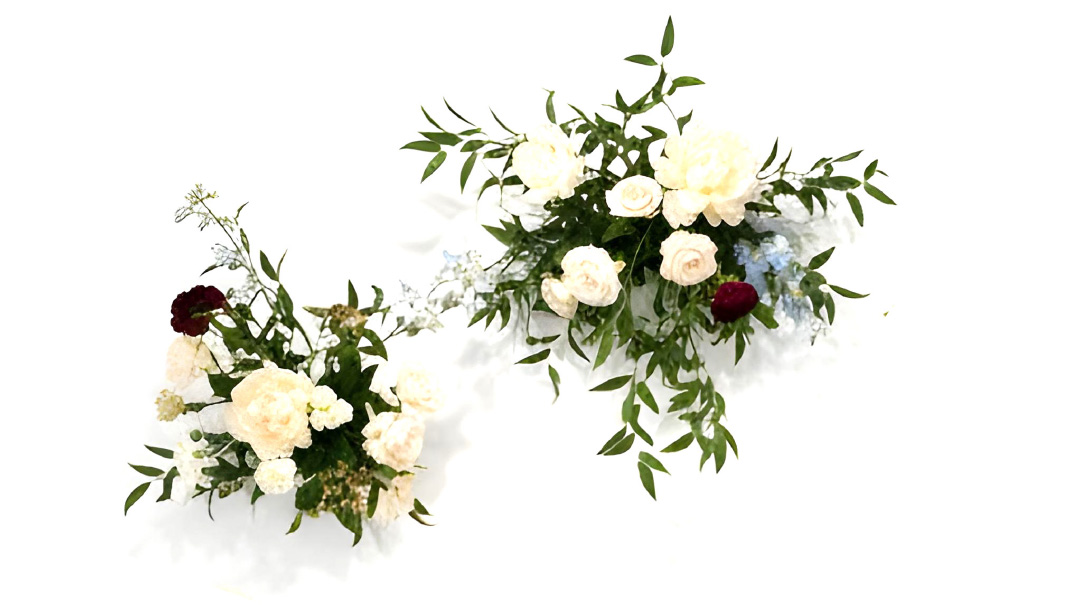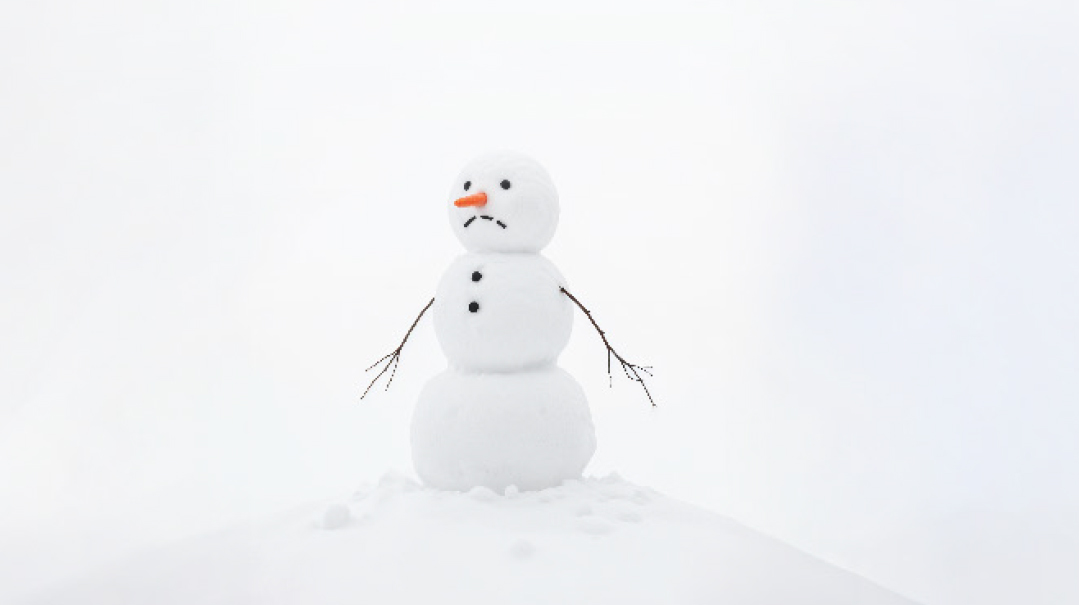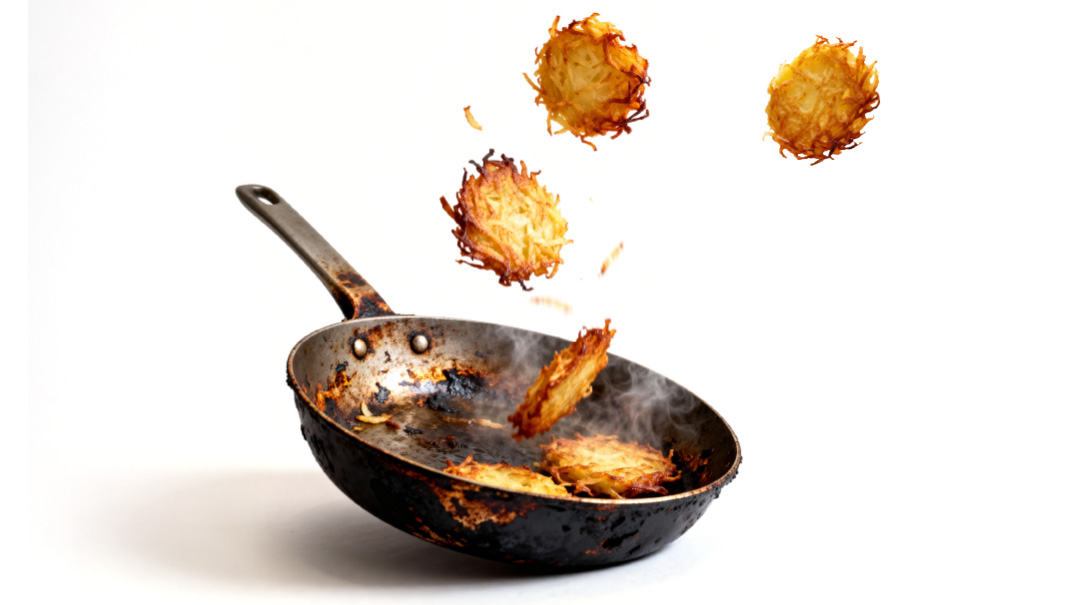Our Very Own Creation
| April 20, 2016What would Lena think of red gelatin blood, ping-pong balls, and plastic rings?
On the first night of Pesach I walk outside to the freezer in the garage — yet again! — but this time in my Pesach dress and freshly washed sheitel. My steps are light and unhurried, unlike the frenzied pace of the previous week and a half.
Just as I had on those late nights, I search for the moon. As it shines down on me in its full radiance, I think: I made it! The nonstop cooking and cleaning have faded into the background now, the prelude to the climax about to come: the six of us entering our own world where we’d reexperience the bonds of slavery and the sweetness of redemption.
I hurry to get the chicken and kugel before I miss anything.
With the pillows positioned just right and bechers filled to the brim, Nosson smiles at the children. They look at him wide-eyed, Haggados open on the still spotless tablecloth. He breaks the middle matzah and, although his mother isn’t here this year, he carries on her tradition. Placing the afikomen bag over his shoulder, he says, “Misharotam tzirurot b’simlotam al shichmam — Their leftovers bound up in their garments upon their shoulders (Shemos 12:34).
“Where are we coming from?”
“Mitzrayim!” we answer together.
He switches the bag to his other shoulder. “Where are we going?”
“Yerushalayim!”
“My turn!” Nine-year-old Chana reaches for the matzah, puts it on her shoulder, and says the pasuk, perfectly intonated with her grandmother’s Arabic accent. We all take turns, even the toddler places the bag on her little shoulder.
Moments later my husband dons a plastic mask with huge eyebrows and a ghoulish smile. He tells our children how Lavan attempted to destroy Yaakov and all of the Jewish People. The kids are quiet, studying the cruel Lavan. Two-year-old Emunah stops sucking her lollipop and stares.
At the appointed time, Nosson looks at me and stands. While he opens the front door, I take the pillowcases from the hall closet.
“What are we doing?” Chana asks.
“Outside, Mommy?” Yaakov takes my hand. “It’s dark.”
“Yidden,” my husband commands. “Get to work!”
The kids hoist the pillowcases — with real bricks inside — over their shoulders, and I push the stroller down our quiet street. There’s no one else around carrying bricks on their backs. I smile to myself, proud of the latest addition to our Seder.
Moshe hunches over and walks as fast as he can, while the others trail behind. “It is heavy.” He hands me the pillowcase, winded. “I’ll push.” He takes over the stroller and turns for home.
“Wait, wait! Just a little more,” I call, but he’s two houses away, and the others have already disappeared back inside.
I want to remind them that the Yidden couldn’t stop when they got tired. They had to keep going! I’d wanted us to walk all the way around the block, to really taste avdus, or at least as much as we could in our comfortable lives.
Next year, I think, we’ll go around twice.
“You no-good Yidden!” Pharaoh (my husband), bedecked in a silver and royal blue Egyptian headdress, sits with his arms folded across his chest, scowling at Moshe Rabbeinu (son Moshe) and Aharon (Yaakov). Moshe — in a gold and red turban — strikes his stick against the floor and pleads the Jews’ case.
At his side, Aharon yells at Pharaoh, while Miriam (Chana) hovers nearby, shushing her babies. My own baby sits on my lap, adorning each chubby finger with a plastic jewel as she prepares to leave Mitzrayim with her loot.
“Mommy, Mommy!” Yaakov taps my shoulder several times. “Almost Dam!” I jump up, run to the kitchen, and bring out the red gelatin powder, which I quickly sprinkle into the plastic cups.
When I sit down, Moshe yells, “Then all of your water will turn to blood!” As he slams his stick against the floor, Chana pours the water into everyone’s plastic cup. We all gasp at the red liquid and the kids giggle, drinking the concoction and asking for more.
My husband bends over, digs in his box, and searches for the next prop. The kids look at him, expectantly.
Amidst the tumult, I open the Haggadah Touched by the Seder, by Rabbi Yechiel Spero. There I read something I’d never heard before: Our ancestors come and join us at our Seder tables. Immediately, my great-great-grandmother Lena — whose brass candlesticks adorn my mantel — comes to mind. She and her husband Solomon were born exactly 100 years before my husband and me.
My grandmother told me stories about her grandmother Lena, who took her along to the kosher butcher and made delicious cholent every week. When I became religious, my grandmother couldn’t get over the fact that I cooked the very same dish, the specialty of her beloved grandmother. To her, and so many Jews like her, cholent was from a bygone era, as incomprehensible as a horse-drawn wagon on modern streets.
Lena and Solomon, the last frum relatives on my father’s side, symbolized my flimsy link to the tradition I now held dear. I often stared at the old photograph I have of their headstones, squinting at the Hebrew inscriptions, and imagining their turn-of-the-century lives. Did Lena have shiny silver bechers, a crystal decanter, and bone china? Or simple plates with a delicate floral print along the edge that matched the tea set handed down from her mother?
Surely Lena and Solomon presided over their Seder table regally, he in his starched kittel and she in her white Pesach dress and scarf. I pictured them surrounded by cherubic children, a golden light glinting off the silver, much like an oil painting of that long-ago era.
What would Lena think of red gelatin blood, ping-pong balls, and plastic rings? What would she make of running down our hall through our plastic-tablecloth Yam Suf, each hanging fish, pomegranate, and cluster of grapes colored by our children weeks before?
Our Seder resembled that of our grandparents; our words were their words. But my mother-in-law’s Sephardic raisin charoset sat beside my Ashkenazi father’s apple-walnut-cinnamon version. I served marinated salmon alongside the boiled eggs. For dessert, we ate apple-pear compote and four-color rainbow sherbet. Add in the masks, bricks, and Makkos you could touch, and it looked very different from the Sedorim of our ancestors.
I inhale deeply and look around at our table. The children’s cups overflow with marshmallows, chocolate almonds, and sticky Pesach candy — rewards for saying their divrei Torah and arba kashas. While they laugh and trade treats, revelling in the freedom of this night, I realize something: this is the highlight of their year. How unlike the Seder I was raised with, where most of what was said (in Hebrew by my grandfather and uncles) I did not understand. The four of us grandkids fidgeted at the end of the table, anxious to eat dinner and go play, nibbling on a piece of wilted lettuce and jarred gefilte fish.
For our children, this was their night. Everything was done, and said for them. My husband and I were too far removed from Lena and Solomon to do what they had done. We couldn’t recreate something we’d never experienced. Instead, we created something new. We hoped that this night, fashioned with love, responsibility, and ingenuity, would implant in our children the hakaras hatov and emunah that they needed for their entire lives.
Just the two older children, my husband, and I sit up into the wee hours singing Chad Gadya. We make the sounds — the water, the stick, the malach ha’maves — with Moshe, still in his choshech sunglasses, designating the parts. I wander from dining room to kitchen in an exhausted-yet-exhilarated daze, clearing the table, dutifully making my goring ox sound when reminded.
When it’s finally time to sleep, I leave whatever I didn’t manage to clean for the morning: the table splattered with grape juice and wine, little frogs lying on the floor, empty containers of Must gum alongside shimmering gold coins. Eliyahu Hanavi’s glass wine goblet stands full to the top in the middle of the table, keeping guard.
Under the covers, Chana asks me to read to her.
“Read to you?” I say. “It’s two in the morning!” She laughs. But I get it. She doesn’t want the night to end. And I don’t either. How amazing! My children want still more Seder.
Gratified, I read to her for all of two minutes before she’s asleep.
I shuffle to bed and pull the blanket up to my chin. I picture Lena in her white Pesach dress and headscarf, smiling at me, face aglow in the light of her brass candlesticks.
Did you like what you saw? I ask her.
My dear daughter, I hear her faint whisper, I could not be happier.
(Originally featured in Family First, Issue 489)
Oops! We could not locate your form.







